AN EPHEMERAL EXISTENCE AT HOTEL SHAHJAHAN
Chowringhee made me smile so often that, at times, I forgot about the underlying sorrow in the lives of its characters.
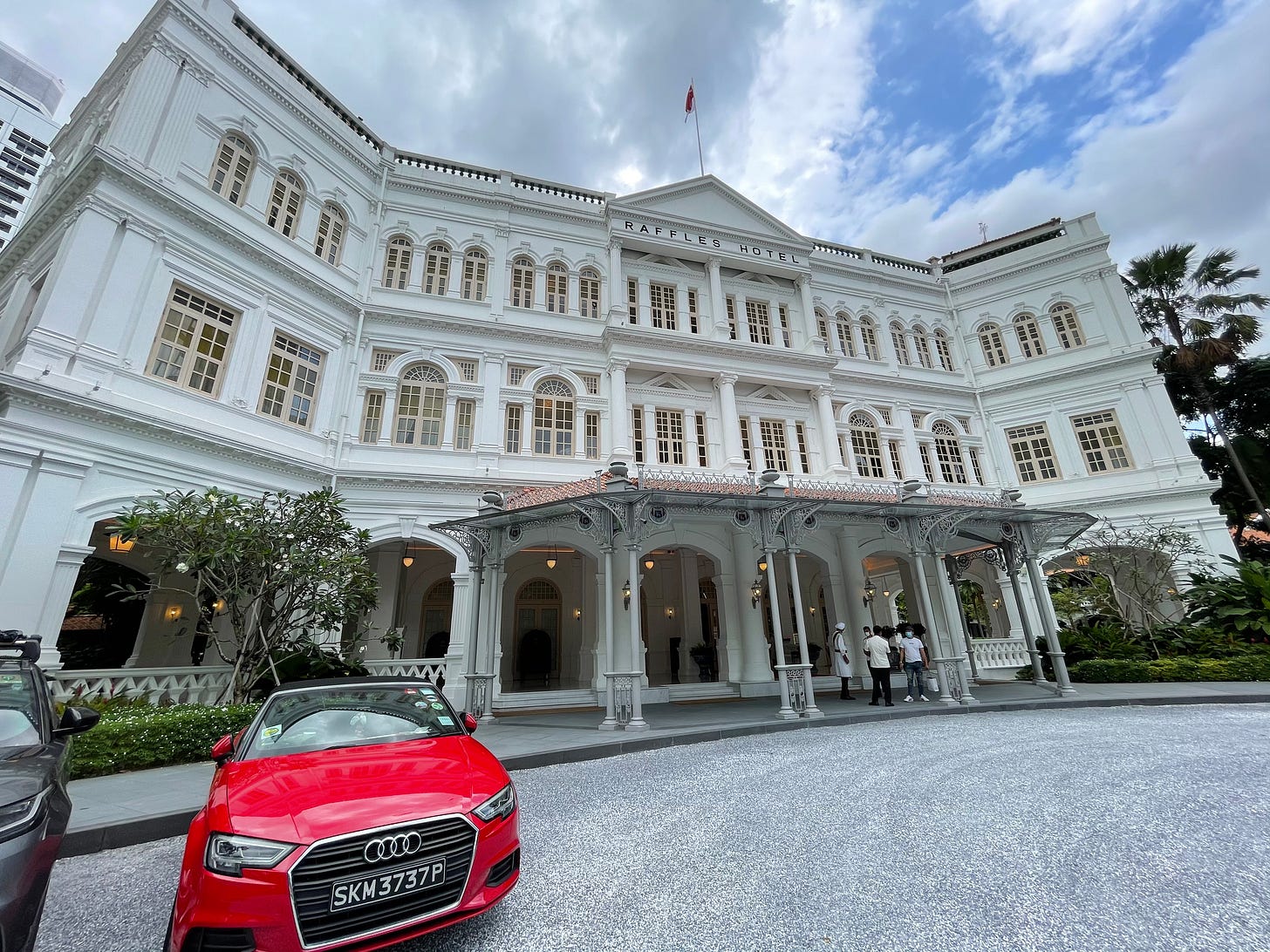
My copy of Chowringhee is now pockmarked with many smileys and stars. In this post I’ve shared some memorable lines below the iconic images of the grand old city of Kolkata. This Bengali novel by Mani Sankar Mukherjee was first published in 1962. Translated into English by Arunava Sinha, it is a memoir of a young man in post-independence Calcutta. The affable Sankar, the narrator at the heart of Chowringhee, is penurious. His boss, a barrister, has died. Soon Sankar finds himself jobless and adrift in a city teeming with many unemployed young people. He is in despair: “For the wretched of the world like us, the slightest storm is enough to destroy the oasis.”
When we first meet Sankar, he’s taking refuge at a park under the statue of the late Sir Hariram Goenka, one of Calcutta’s great businessmen. At the time, Sankar is trying to make a living hawking baskets. Unfortunately, his job as a basket hawker will not grant him the privilege of entering the lift of the building in which he may find customers. Only the important people may enter a lift, it turns out, and Sankar soon realizes that his career and life are hardly consequential in the world. “This was the way the world worked,” he muses as he heads up the stairs on the day he’s barred from entering the lift. “Not everyone gets a lift to move up.”
His luck changes, however, thanks to a friend. While he may never come into untold riches, his new job at the front desk of Hotel Shahjahan, Calcutta’s most famous landmark, will enrich his life in countless ways.
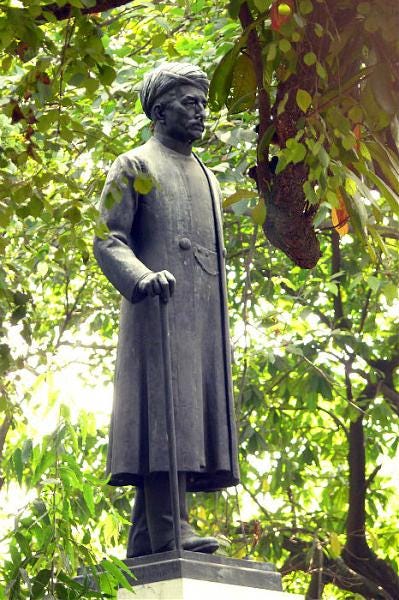
“Aristotle has said a beautiful face is better than all the letters of recommendation in the world.”
On page after page in Chowringhee, I found a delightful turn of phrase . Alongside the bracing wit, a sense of sadness lingers from beginning to end. Everything is never what it seems, as Sankar soon learns. Naive and self-effacing as he is, his observations about the world are accurate and zany. There’s endless wisdom, too, from the man who is Sankar’s friend, philosopher and guide. I waited, with bated breath, for Sata Bose (Bose-da) to launch another of his soliloquies.
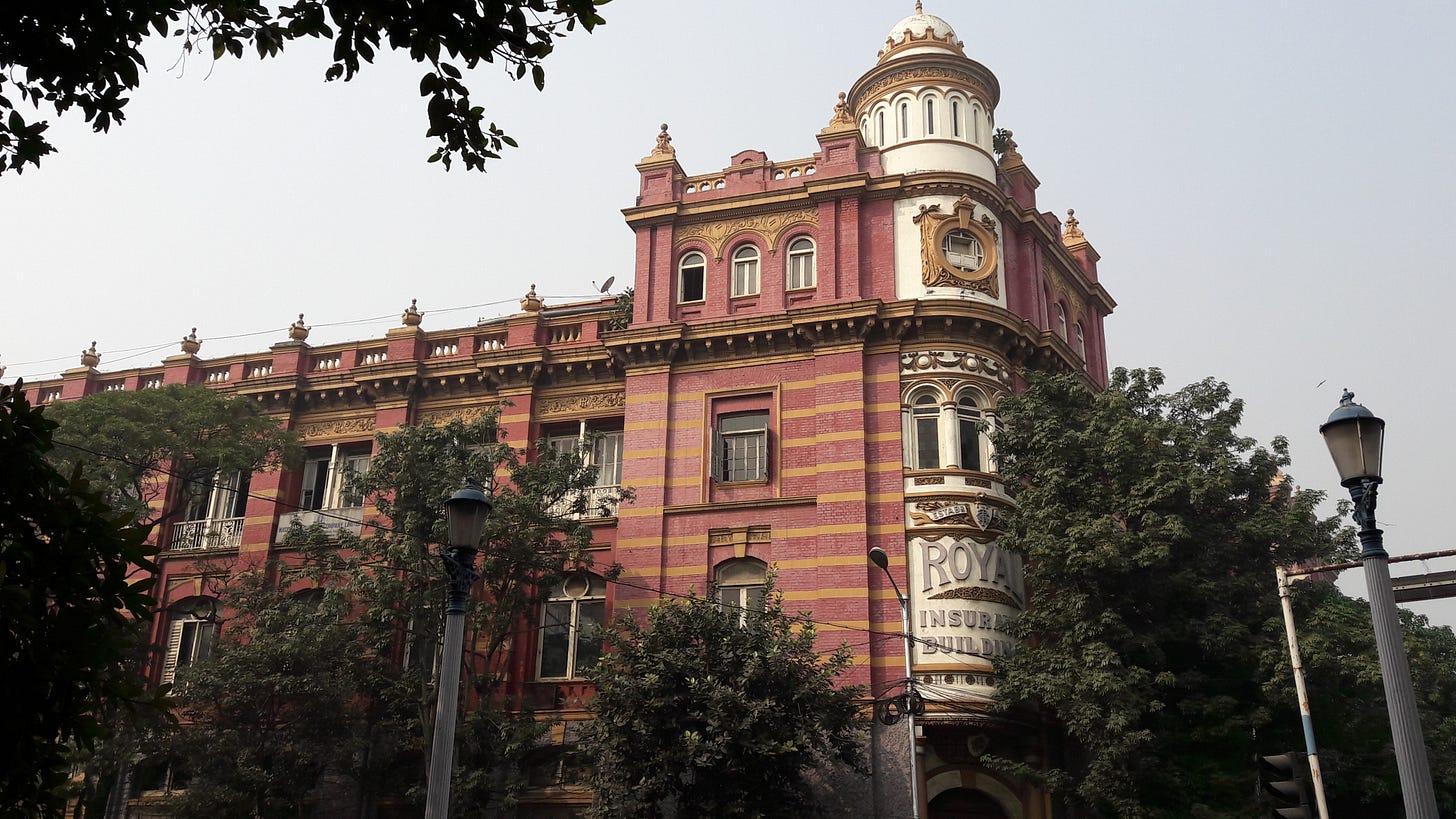
“Watch Calcutta and its philanthropic citizens carefully because when the report of this session appears in tomorrow’s papers, the real stuff won’t be in there. They’ll only carry an account of the speeches and the summaries—and those have already reached the newspaper offices. The Bible’s been written even before Jesus is born.“
Sankar’s benevolent gaze allows us to see Hotel Shahjahan and Calcutta as a “happening” place. One of the highlights of his career as a receptionist is his meeting with Connie, the world-famous cabaret dancer. Yet, the anticipation is sullied on the day of her opening act when he introduces her to an audience full of Calcutta’s lascivious males. The drumroll leads up to Sankar’s announcement from the stage. Connie begins to gyrate and discard her clothes. It is Sankar’s own triumphant moment. He too has arrived.
Yet, hours later Sankar is despondent and ashamed. Connie was selling herself and the great men of Calcutta heckled and whistled in celebration of her objectification. Sankar is unable to come to terms with his own complicity. Slowly, in unseeable ways, Sankar had begun to sell himself, too, without ever really intending to do so. He had assumed the hotel’s persona. Sankar’s words to Bose-da sum it up. “I never dreamt of being part of this hotel, and yet, now that I am, my soul, without my even realizing it, has mingled with Shahjahan and become one with it.”
Sankar’s anguish grows as he makes deeper friendships with the staff and with those who frequent the hotel. People come and people go out of Hotel Shahjahan, he realizes, and the impermanence of it all hurts him. Some, like his friend, the hostess Karabi Guha, choose to end their lives at the hotel. Mrs. Pakrashi, the seemingly devout wife of an industrialist uses the hotel (and the staff) for her affairs and hurts her family. Sankar must turn a blind eye to that. As Bose-da tells Sankar, it’s important to remember to never take things to heart. As a staffer at a hotel, he must stay detached, above all.
The peril of too much attachment is a constant refrain through the novel. Prabhat Chandra Gomez, the listless Goan musician at the Shahjahan, is an ardent fan of several western classical musicians but he never finds his voice except on the day of his last concert at Hotel Shahjahan. He has spent his life mired in regret, making music that never really spoke to his heart. Sankar is distressed by Gomez’s disillusionment over his career choices but there’s nothing he can do. It’s the sort of regret that’s like an invisible ball and a chain. The author zeroes in on the pathos with these lines: “In Calcutta’s hotels I’ve heard musicians who could have earned worldwide fame if they had had the opportunity and the right breaks.” Which of us hasn’t heard a street musician who deserved the stage? How many of us will step out of our comfort zone and risk everything to find our voices? Life, unfortunately, is not an equal opportunity employer.

For a 400 page story, Chowringhee rarely sags. Yet there were moments when my eyes glazed over, especially as the narrative shifted focus from one character to another in succession. Several intriguing characters never returned. I realized, however, as time went on, that it was the whole point of the story. Hotel Shahjahan offers a parade of colorful characters carrying their personal baggage of insecurities and fears. This, here, my friends, describes the ephemerality of our own lives, says Mani Sankar Mukherjee. This is us. We are all ships that pass in the night. In the end what really matters is whether we forged meaningful and enduring relationships during the trajectory of our mutual connectedness.
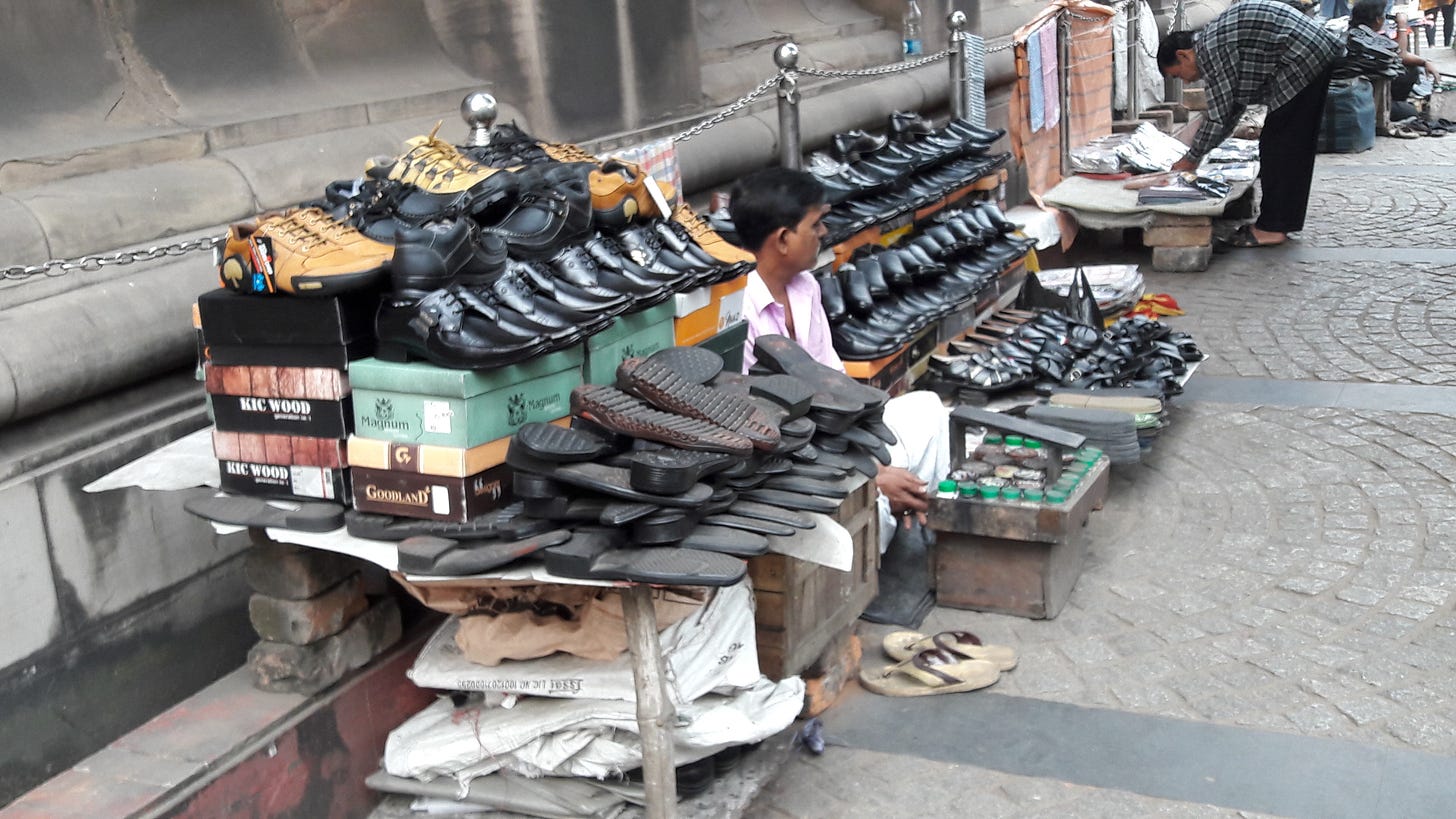
“A close observation would reveal that the caste system operated even in the automobile society, with the doorman tailoring his salute to the lineage of the car. “
In real life, author Mani Sankar Mukherjee's father died when he was a teenager. Sankar became a clerk to the last British barrister of the Calcutta High Court. Chowringhee’s story begins like the author’s own story and the pathos and humor that accompanies his early struggles feel very real in the book. Just like the protagonist, the author, too, survived by pursuing odd jobs—as a typewriter cleaner, a private tutor and a hawker. I read an interview of the author which alludes to his “fraught relationship with the Bengali literary establishment” and the world of English and translations. His acerbic wit lights up the entire piece: “My books have only received one award in Bangla: for excellent binding.” I heard that self-deprecating humor throughout Chowringhee.
When I reached the end of Chowringhee it was clear why the novel became a bestseller and rolled onto the stage and the silver screen. Arunava Sinha’s translation is terrific, of course. In 2007, Sinha’s work won the Crossword Translation Award. I just learned that he won the Distinguished Translator Award for 2022 at Jaipur Literature Festival. If you’ve read Sinha’s introduction to another of his other memorable translations—a collection of short stories titled The Greatest Bengali Stories Ever Told—you’ll know that you’re in the hands of a master craftsman.



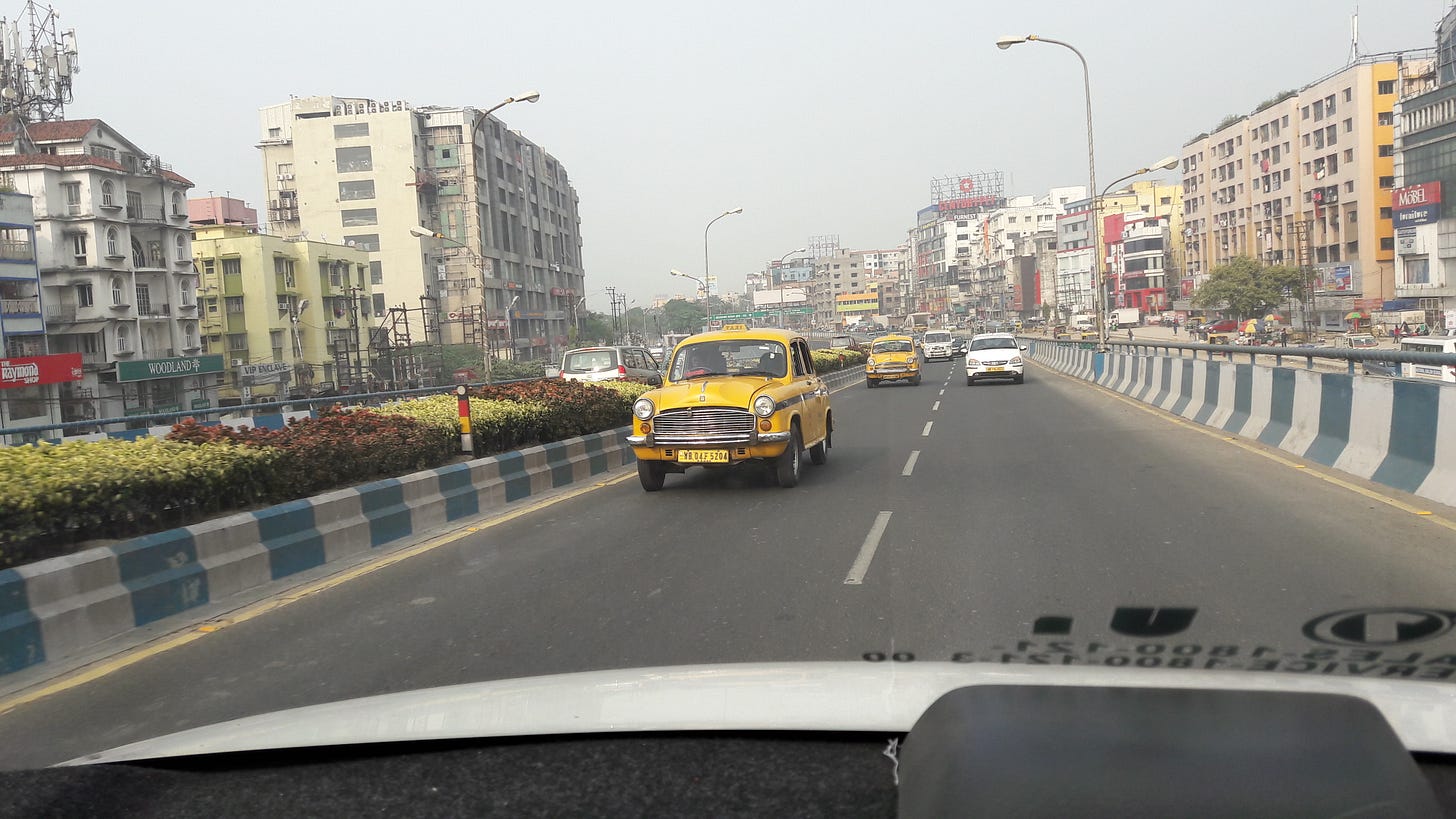

Kalpana, I have been enjoying reading each post from this series very much. I feel like books in regional languages capture the culture, beauty and mundane-ness of daily life and the region in a very special way. Every weekly post of yours makes we want to read the book. Thank you for sharing your experiences so beautifully.
Is that original Hotel Shah Jahan building (Spence’s Hotel of old Calcutta) still standing and what is it now?